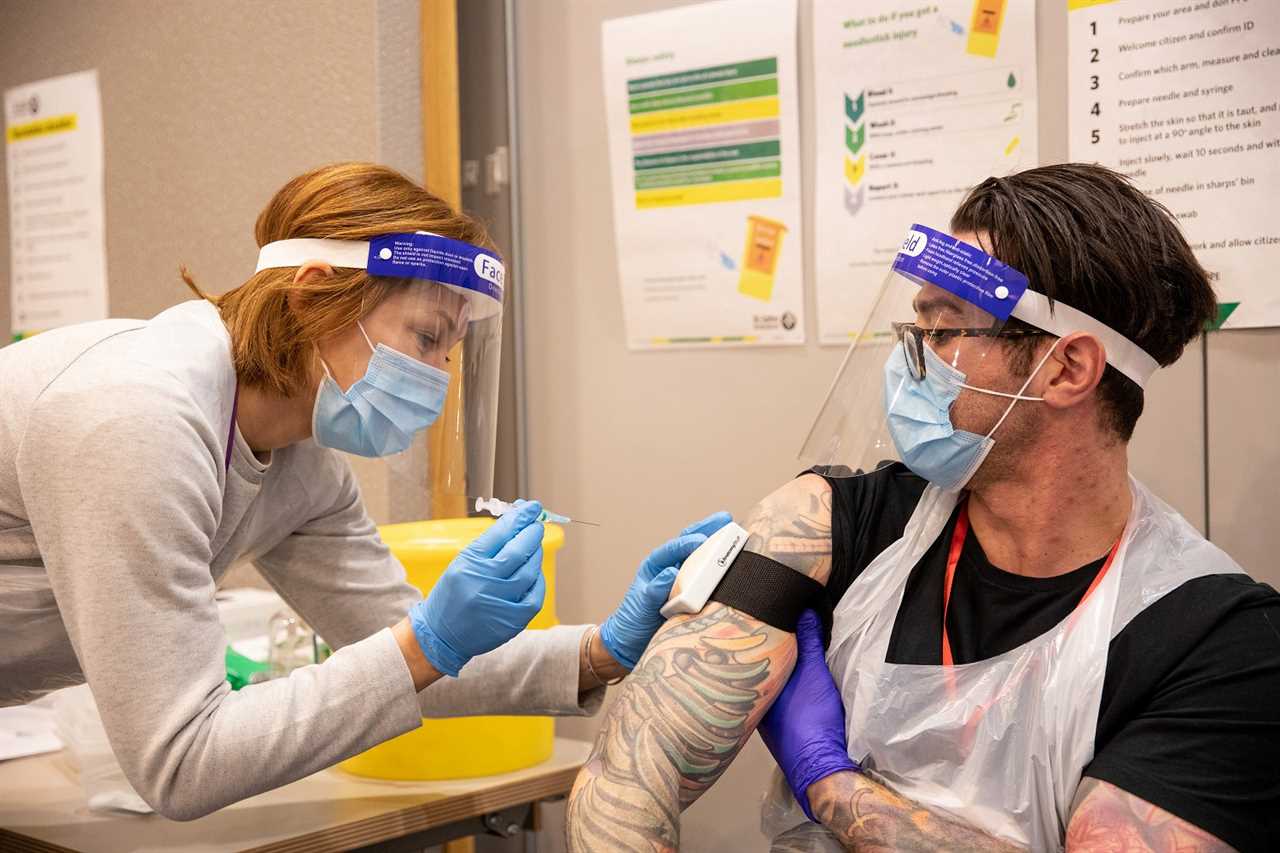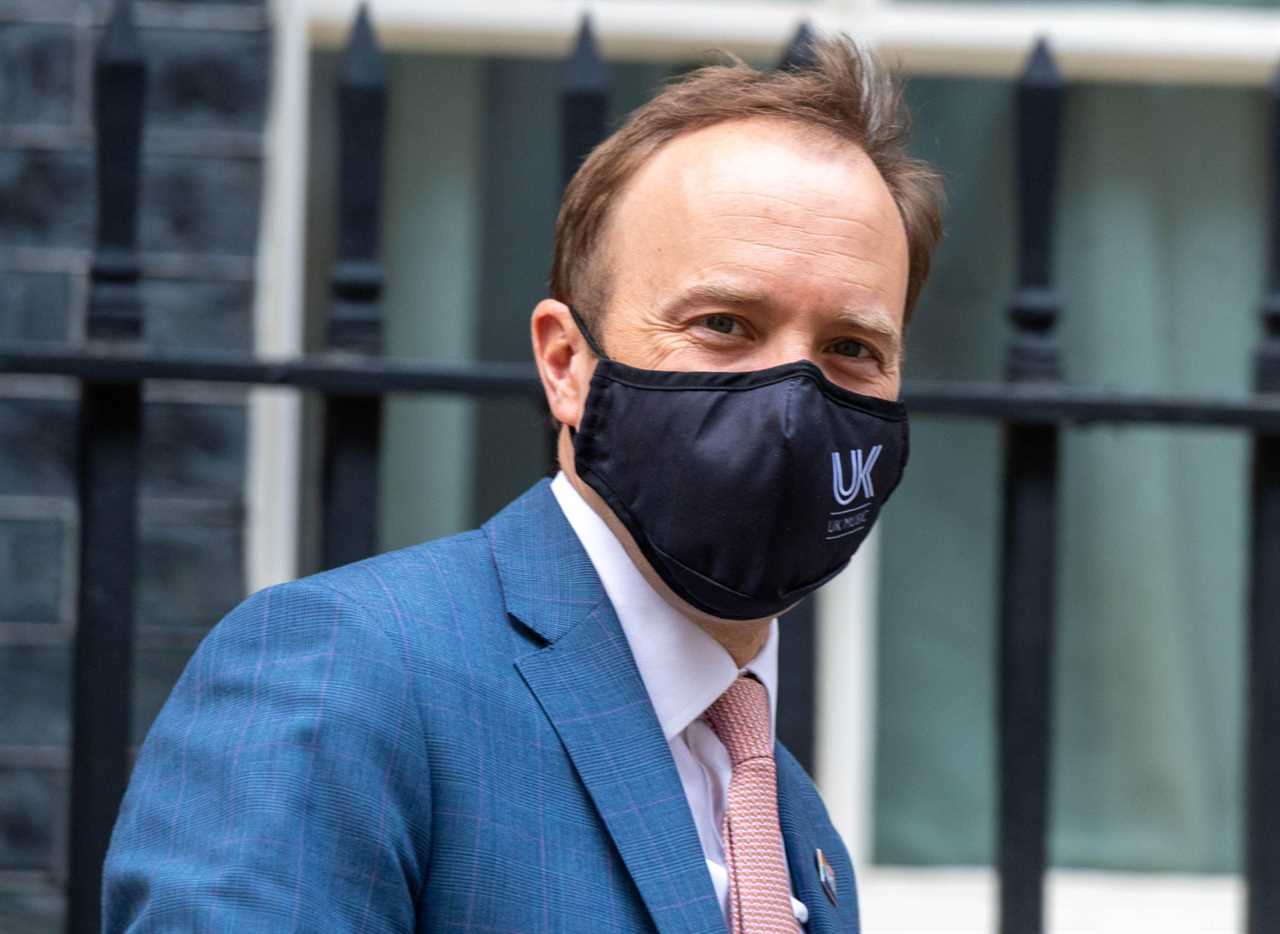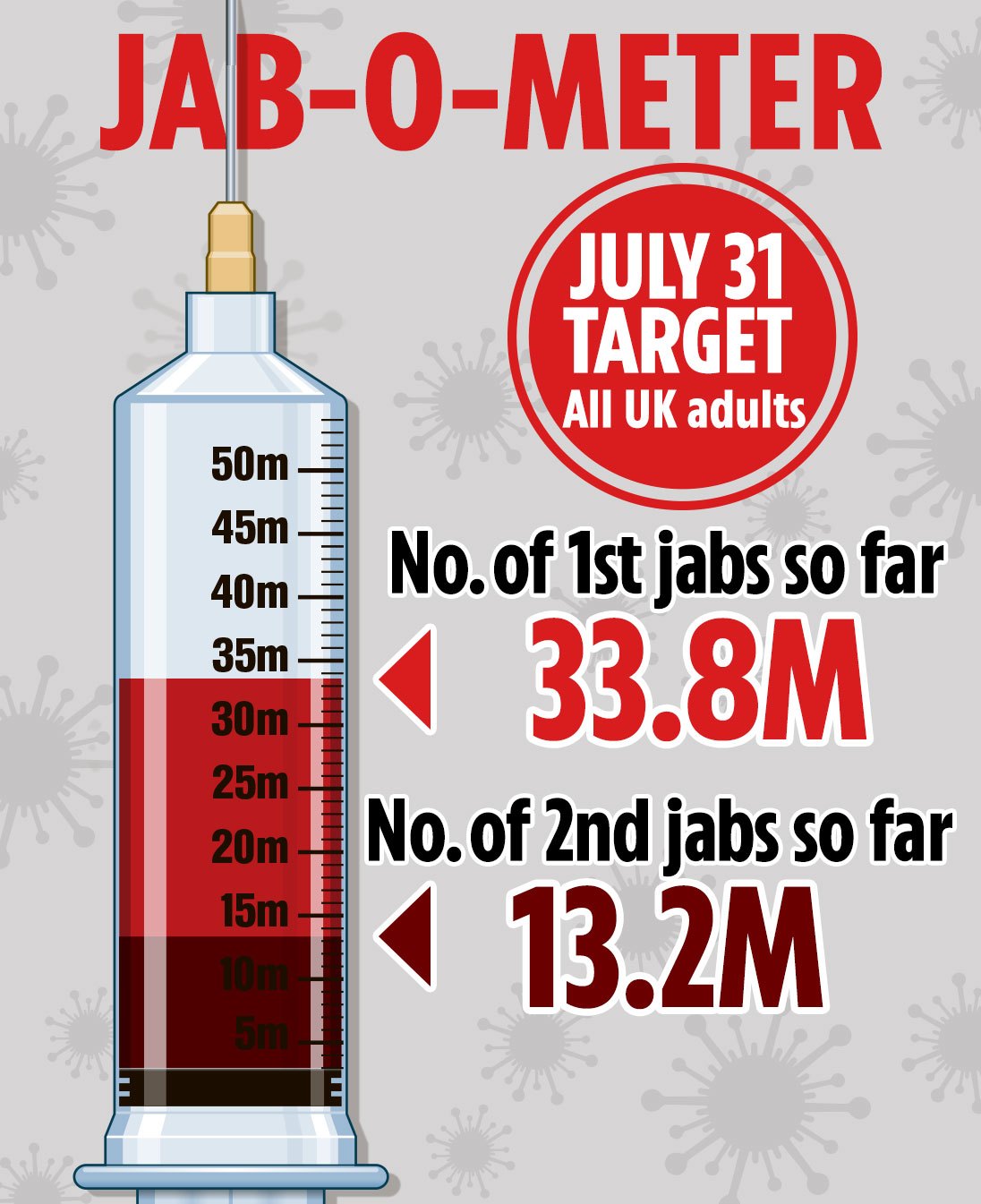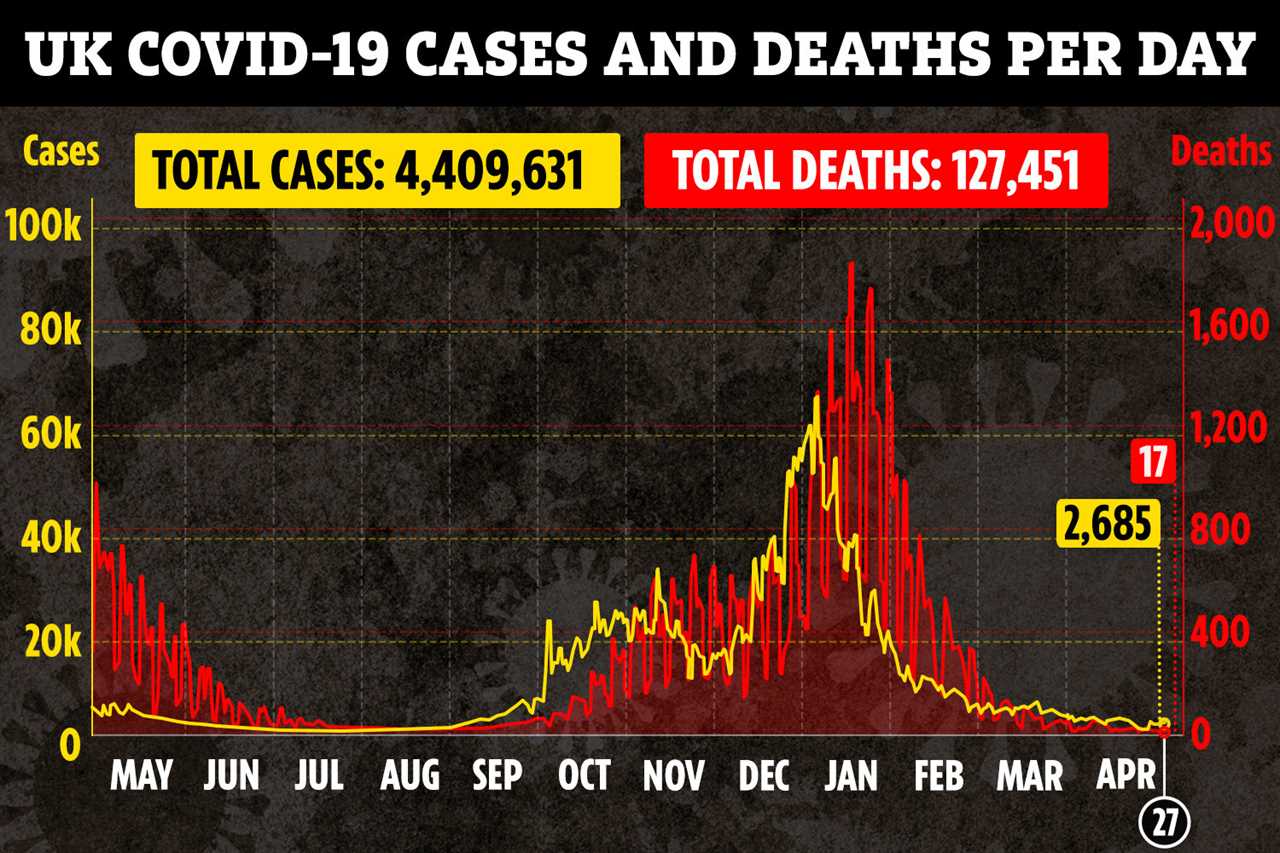COVID vaccination does slash transmission — with infected people up to 49 per cent less likely to pass on the virus once they are jabbed.
Matt Hancock yesterday hailed the “terrific” new data.

Read our coronavirus live blog for the latest updates


Public Health England said a single dose cuts the risk of catching the virus by two-thirds and onward transmission to household members by up to almost half.
The Health Secretary said: “It further reinforces that vaccines are the best way out of this pandemic as they protect you and they may prevent you from unknowingly infecting someone in your household.”
Experts think that vaccinated patients are less likely to pass on the bug because they produce less of the virus.
The Pfizer jab reduced the chance by 49 per cent and Oxford/AstraZeneca by 38 per cent.
One in four adults in the UK are now fully immunised with their second shot.
And the vaccination programme received a boost yesterday as a host of stars volunteered to help with St John Ambulance.



TV presenter Emma Willis and musician husband Matt were among those getting trained.
And half of workers expect their bosses to demand a vaccine passport before they can return to their workplace.
However, two-thirds are against such a plan, a study by BrightHR found.






